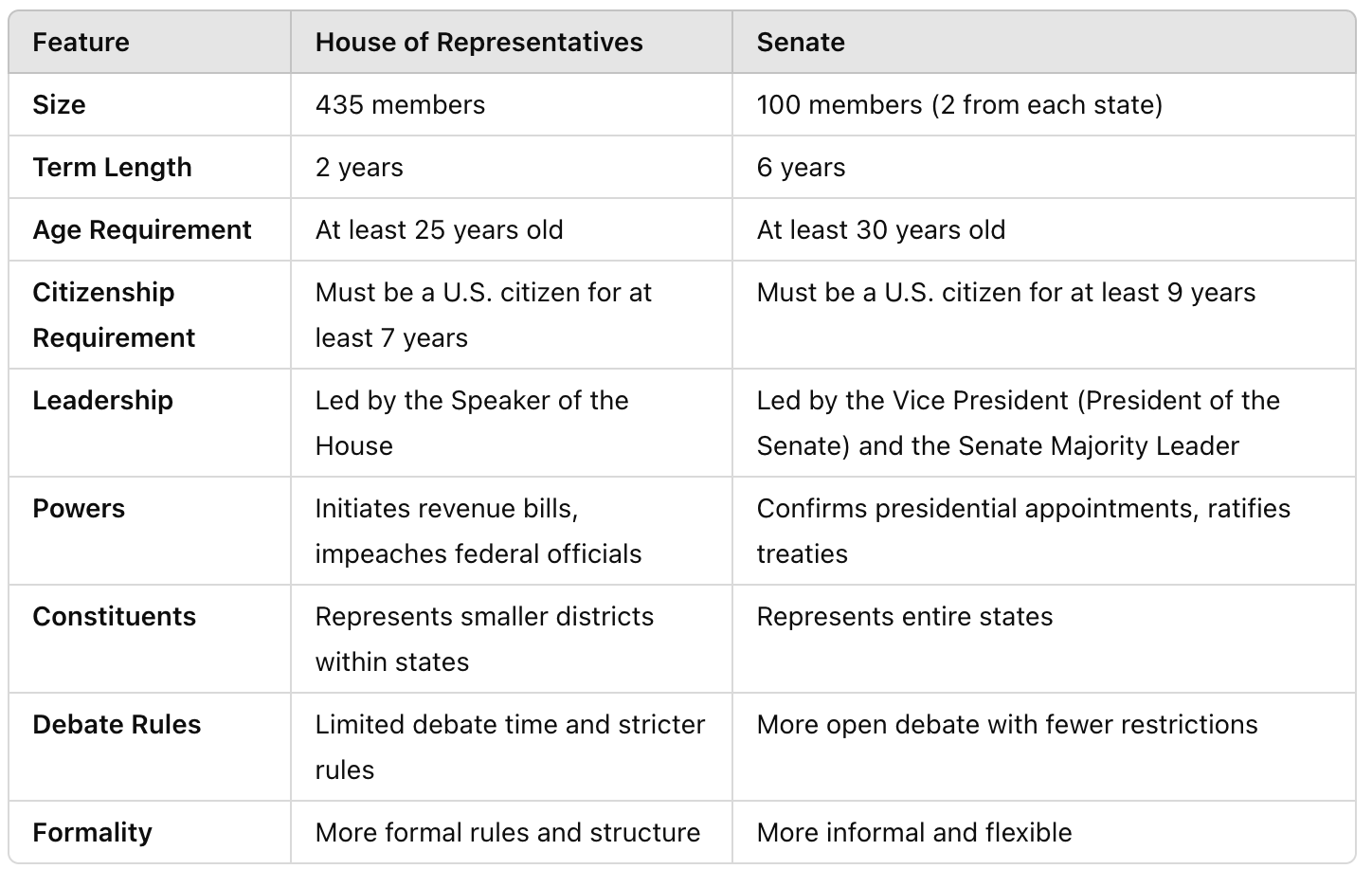AP government: US-Unit 2-Branches of Government-Powers of Congress
1/12
Earn XP
Name | Mastery | Learn | Test | Matching | Spaced |
|---|
No study sessions yet.
13 Terms
Article I
Establishes the legislative branch of the federal government, the Congress. Under Article One, Congress is a bicameral legislature consisting of the House of Representatives and the Senate.
Enumerated (Expressed powers)
Powers of federal government addressed in the Constitution.
Implied Powers
Powers of federal government beyond the Constitution.
These powers come from the Proper and Necessary Clause.
These powers include:
U.S House of Representatives
Lower chamber of U.S congress. Makes and passes laws.
Represented by population.
They can: initiate revenue (tax bills) and impeach federal officials
Speaker of the House
Official leader of the majority party in the house. They are chosen by House members by vote meaning that they will always be a member of the majority party.
What can the speaker of the house do?
The Speaker regulates and enforces the rules of debate. He decides who has the right to speak and puts the question for the House to debate on and vote.
U.S House of Senate
Upper part of congress. Takes action on bills, amendments, treaties, etc by voting.
Senate Majority Leader
Senior member from majority party who assists in setting legislative priorities, guiding bills through committees, etc.
Legislative Process
Bills are introduced and sent to appropriate committees. Within committees, bill is debated on whether to be passed on or vetoed.
What’s the difference between the House and the Senate?
House:
More efficient debates that are more structured
Senate:
Informal debates. Includes filibuster which works to kill a bill

Committee
Work in done by both House and Senate in committees. A necessity because it is impossible to get anything done in big groups of people so that they can debate and draft precise legislation.
Standing Committee
Permanent committees that handle specific areas, such as Finance, Judiciary, or Foreign Relations. These are the most common and important in shaping legislation.